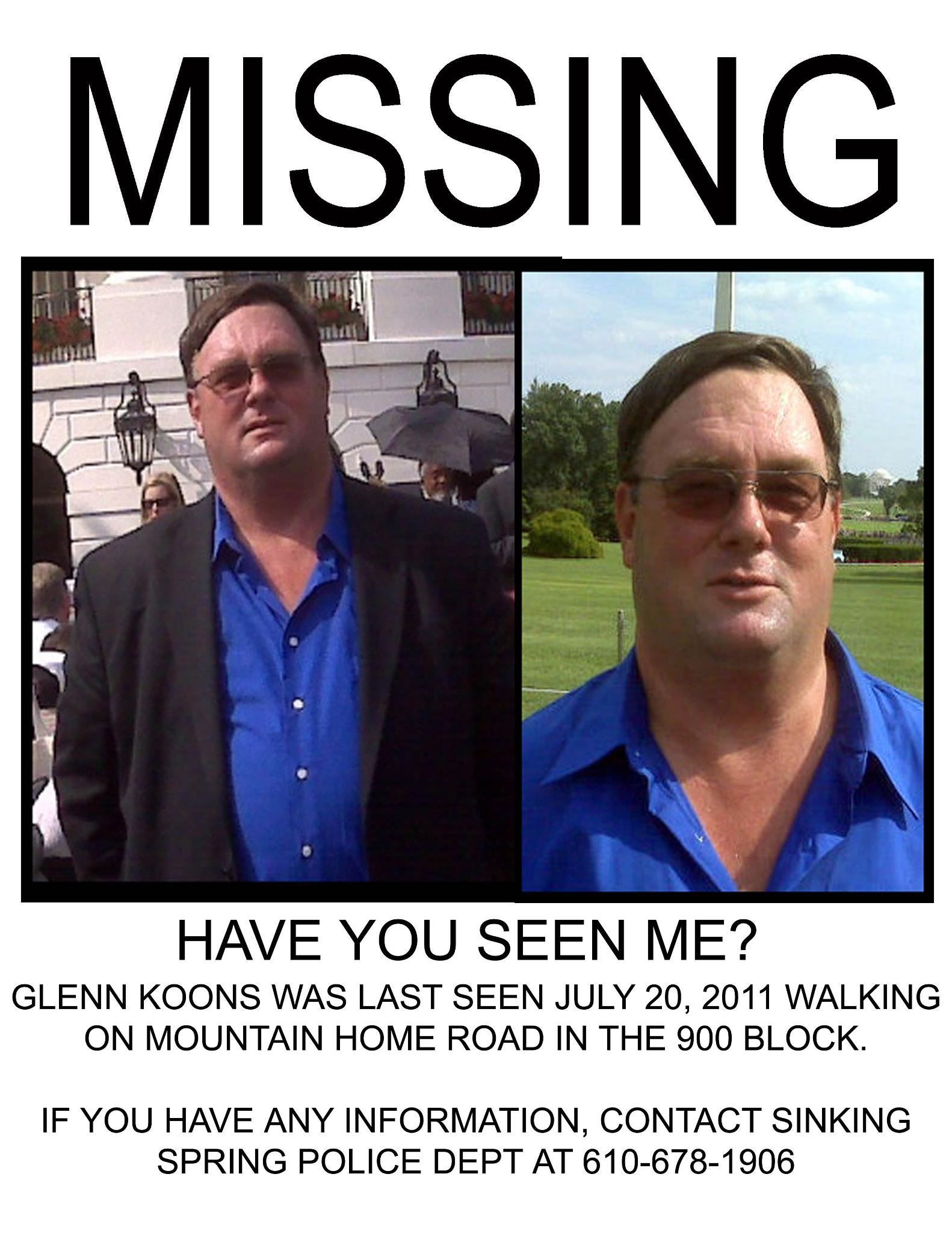
*Several of Glenn Koons’ friends have posted comments on the blog post that I published about his death. If you take a moment to read them, you will discover there are several disturbing questions about his death that have not been answered.
Glenn was discharged from a hospital but apparently never returned to his apartment. Instead, he disappeared for 41 days. Where was he? Where was he sleeping? Where was he eating? Who was with him? His friends believe someone must know the answers to these questions, but no one has come forward to answer them.
Unfortunately, when someone with a mental disorder dies, some people automatically assume it was inevitable because of their illness or that the victim was somehow to blame. No one should make those assumptions.
Glenn was a good man and his friends are right in demanding to know what happened to him between the time that he was discharged and his body was found.




I am just seeing this now and I’d like to thank you for posting this.
Glenn Koons worked for me about ten years ago, and we continued to keep in touch. To describe Glenn as someone with a “mental disorder” is incorrect. Glenn had an addiction history, and had allowed himself to be put on psychiatric drugs a long time ago. Does anyone know if Glenn was in a psych ward in the hospital? I was told that he had no I.D. or money on him when he was found. Both psychiatric drugs and withdrawal from same can cause confusion and worse.
Connie, I was told he had a stay most recently in Reading Hospital who released him, from what I was told, to a taxi cab ride to his home. I fear the negligence of their care was largely responsible for his death and significant efforts have been made to conceal that fact. Including a fictitious story about the details around the finding of his body that his former employer and my former employer help to circulate. I was told this was to protect Glenn’s memory and his surviving family as well. My question is, at what potential cost did entities choose to offer that protection.
Connie, Pete has an earlier blog which I responded to that can give you a summary of some facts about the case, including his stay at Reading Hospital, which to answer your question, was in a psychiatric unit. I would suggest you read that if you are interested in learning more about what happened- from what we know so far. I lost regular touch with Glenn a few years ago but from what I have heard from those closest to him- after Glenn moved to Reading, he lost his constant support system of Chesco and the surrounding area and it had a really negative impact on him and it lead to some serious emotional struggles.
I know you and Glenn were close… I remember how highly he spoke of you and I remember when he was so excited to introduce me to you. That’s one of the things that made him so unique- his 100 percent genuine excitement about the work he was doing, the important people he was meeting, and how he could connect so many people to other people in the system.
It bothers me greatly that there are so many unanswered questions regarding what happened in those 41 days he was missing before his death. I think everyone who knew Glenn finds it impossible envisioning what authorities would like us to believe… that it was some kind of episode where he went nuts in the woods for well over a month and then accidentally hit his head. None of it makes any sense and the lack of any further investigation deeply disturbs me and likely many others.